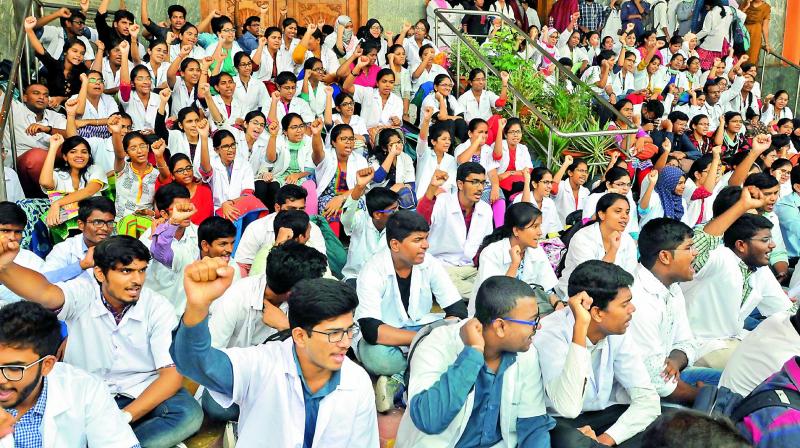BHUBANESWAR: If you have watched a lot of Indian films and your perception is largely based on what it shows, how do you see Indian doctors? Disinterested, depraved, inhuman or even sadists? Medical experts of the city disagree and depict the other side of the coin in the rigors they go through to be successful in this profession.
Fans of Amitabh Bachchan must be familiar with his 1971 classic ‘Anand’. In an instance in the movie, a surprised doctor Bhaskar K Bannerjee (Amitabh) is shocked at his best friend Dr. Kulkarni (Ramesh Deo) leeches money out of patients in cases where simple medications would have sufficed.
The question is: does this image of unscrupulous, money-minting doctors trigger the rising number of patient-doctor conflicts in the country? According to a study by the Indian Medical Association, over 75 per cent of doctors have faced violence at work.
However, is Indian cinema potent enough to influence people to commit violence against doctors? “Not really,” says Smita Das, a psychologist here. “Breaking the bad news to kith and kin of a patient is a highly sensitive matter. Unfortunately, there is little guidance on the approach in this regard,” Das explains.
“In almost all cases, when a patient dies, it comes as a shock to family members. In a state of trauma, closed ones look for something or someone to blame. They often lash out on doctors accusing them of negligence,” she adds.
In a contrast to what is usually shown in Hindi movies, where a doctor shuns away from his duties by saying ‘humse jo ho skta tha humne kia, ab sab bhagwaan k upar hai (we did our best, rest all lays with God), the responsibilities of a doctor in real life also entails disclosing the news of a patient’s death in a trained manner.
Movies are largely based on people and stories from the society. For example, ‘Munna Bhai MBBS’ shows a local thug forcing a doctor to treat a patient lying in critical condition even when the formalities are not completed. Is this an ideal scenario for doctors to work in?
“Doctors are usually insensitive to what patients or their families are going through. For them, it’s just another patient who they can make money from. I’m saying this due to my personal experience. My mother had to wait for four hours to be treated while she groaned in pain with stones in kidneys,” says Sushant Behera who attends to her ailing mother at Capital Hospital here.
A senior surgeon Sukanti Chand Sahoo said, “Rising discontent is a result of the failed public health system. While negligence of staff at public hospitals cannot be ignored, there are cases where patients with minor injuries are allotted beds. This eats up space in the hospital and results in negligence and frustration.”
While Sahoo agrees with Smita’s reasoning on lack of training, he says that complacency in medical practice is a result of infrastructural limitations and lack of manpower. “Much is needed to train practicing doctors and hospital staff to cater to the emotional needs of the patients and their families along with the physical,” he suggests.
Aviral Mishra, OP
